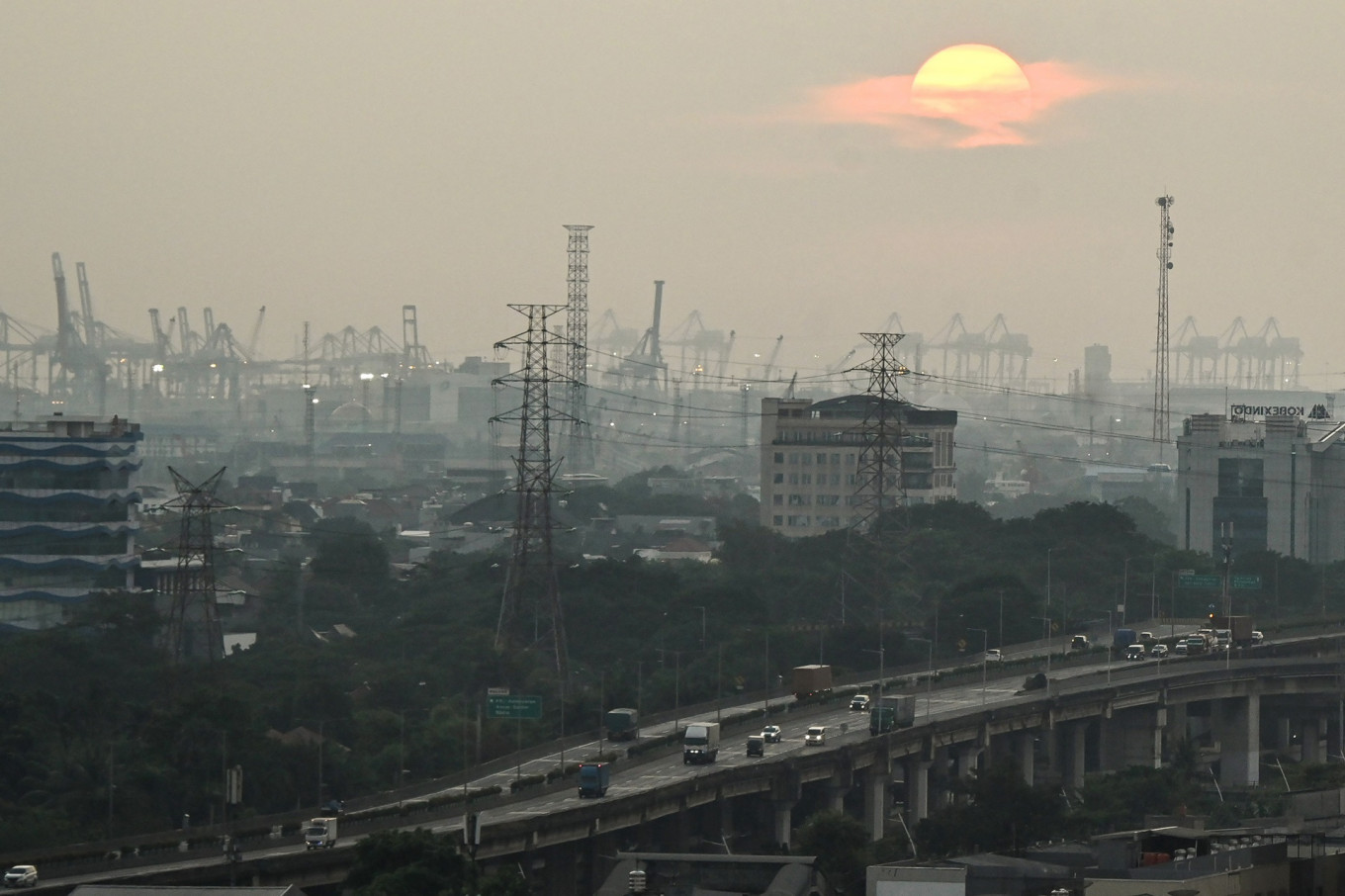Popular Reads
Top Results
Can't find what you're looking for?
View all search resultsPopular Reads
Top Results
Can't find what you're looking for?
View all search resultsDanger in the air
The people expect to see collaboration between the central government and regional administration to push the policy harder for tangible action against the pollution.
Change text size
Gift Premium Articles
to Anyone
W
hat was expected to be a bright and festive celebration of Jakarta’s 497th anniversary turned out to be a gloomy and chaotic affair; not because the city was bidding farewell to its decades-long status as the capital, but due to the thick smog shrouding the city.
Jakarta’s air quality index in the week leading up to its anniversary on June 22 was hovering in the “unhealthy” category, according to an analysis by Swiss tech company IQAir. It even reached a level of 223 at one point on June 18, which falls into the category of “very unhealthy”.
Jakartans are getting sick, literally and figuratively, with the polluted air, but we are also tired with how the government downplays the issue that has been choking the city’s residents for years.
When asked about the worsening air quality in Jakarta, acting Jakarta governor Heru Budi Hartono answered with a straight face: “Everywhere in the world is polluted”. Then without showing any remorse, much less a sense of crisis, he continued by listing off some of the efforts that authorities have made to tackle the pollution, such as cloud seeding to trigger rain and mist spraying from tall buildings, which was supposedly designed to wash out the smog.
Indeed, polluted cities are everywhere. But simply because the smog in Jakarta also occurs in London or New Delhi is no excuse for inaction. Taxpayers demand that government officials work harder to keep the air free from smog for a healthier life in Jakarta.
The spike in pollution has been blamed for the more than 100,000 cases of acute respiratory infections reported every month throughout 2023. More children are also getting sick, with the possibility of babies suffering from stunting and newborn deaths from inhaling the pollutants, including fine particulate matters such as PM2.5 that may block blood vessels.
Authorities should do better than to rely on gimmicks such as mist spraying. Not only does it barely work to clear the air, several studies have highlighted that spraying air vapor may exacerbate the problem and not address the source of the pollution.
The Jakarta administration, as well as the central government, may already have enough in their arsenal to control or reduce the suffocating pollution. The newly enacted Jakarta Special Status Law has a provision that limits the age of motorized vehicles moving around the city. The government has also mulled either restricting or phasing out dirty, fossil fuels in exchange for so-called cleaner biofuels; a move that may also be in line with the mitigation of the climate crisis.
What is important right now is to enforce these rules. The people expect to see collaboration between the central government and regional administration to push the policy harder for tangible action against the pollution.
The policy should also be followed up by actions that support systemic change within the city. Should authorities decide to limit the number of vehicles roaming the city, for example, they should ensure improvements in public transit are already in place. Jakarta and the central government should work together to make sure we have enough of a bus fleet and trains to facilitate the mobility of millions of city residents and make it easier for millions of others in Jakarta’s outskirts to commute.
While envisioning a green and smart capital city in Nusantara, East Kalimantan, the government’s responsibility to protect Jakarta people from environmental disasters remains intact.
Government officials should stop being dismissive of Jakarta's pollution but do their best to clean up the air instead. Otherwise, Jakartans will have to spend years of living dangerously due to the life-threatening pollutants, while the city slowly but surely sinks.











